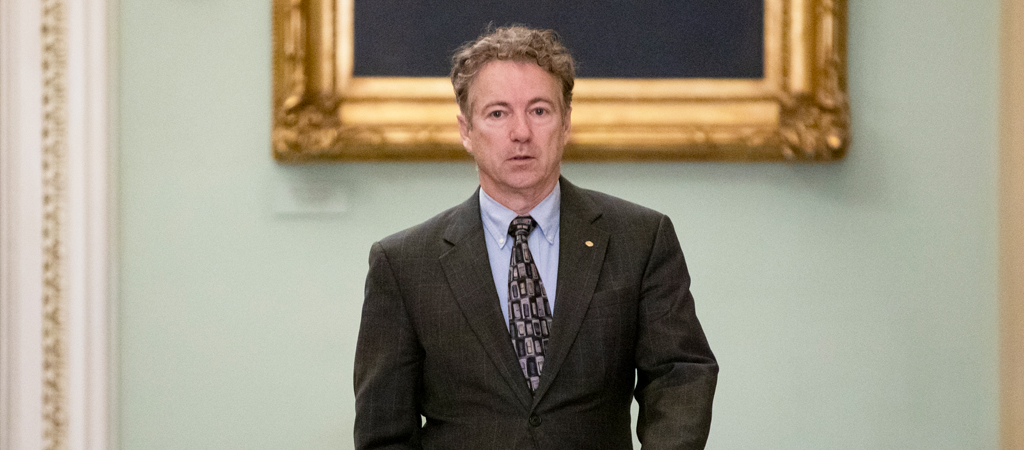Rand Paul has been one of the most COVID-skeptic members of the GOP, known for getting schooled by Dr. Anthony Fauci and for spreading misinformation so severe it’s gotten him suspended from YouTube. But behind the scenes he’s a little different. According to The Washington Post, the Republican senator’s wife bought stock in a drug that wound up being used to battle the virus that has engulfed the planet. And the public is only finding out about it 16 months later.
The Post reports that back in late February, Paul’s wife Kelley brought stock in Gilead Sciences, the company behind Remdesivir, which, months later, was administered to then-president Donald J. Trump after he tested positive for the disease. Initially invented to combat hepatitis C drug and later tested for possible use against other illnesses, including Ebola, the drug was granted emergency use by the FDA as a possible treatment against COVID. Shortly after it was granted full approval, that status was rescinded after a WHO-sponsored study raised doubts about its efficacy.
Kelley Paul’s investment wasn’t very large; it was reportedly between $1,000 and $15,000. She also claimed she lost money on it, which she had made with her own earnings. But her husband only reporting it now greatly exceeds the deadline put in place by the Stock Act, which is designed to stop insider trading. That deadline is 45 days; Paul took 16 months.
At least, as per the Post, he had an excuse:
Kelsey Cooper, a spokeswoman for Paul, said the senator completed a reporting form for his wife’s investment last year, but learned only recently, while preparing an annual disclosure, that the form had not been transmitted. He sought guidance from the Senate Ethics Committee, she said, and filed the supplemental report along with an annual disclosure Wednesday.
The timing of Paul’s wife’s investment was questionable in another way. Though she invested before the pandemic hit the U.S., Remdesivir was backed a mere two days before her purchase, by a WHO assistant director-general who had claimed that it “may have real efficacy” in treating the disease. Joshua Mitts, an expert in securities law at Columbia University, told the Post that the purchase “may have exploited knowledge of the impending pandemic.”
Eight days after his wife purchased stock in a company responsible for a drug seen as a potential treatment against a virus about to take over the U.S., Paul cast the only Senate vote against an $8.3 billion emergency spending bill to combat the outbreak. Later he became the first U.S. senator to test positive for COVID. And last week he released a video in which he claimed, contrary to all medical advice, that wearing masks doesn’t stop transmission.
(Via The Post)

